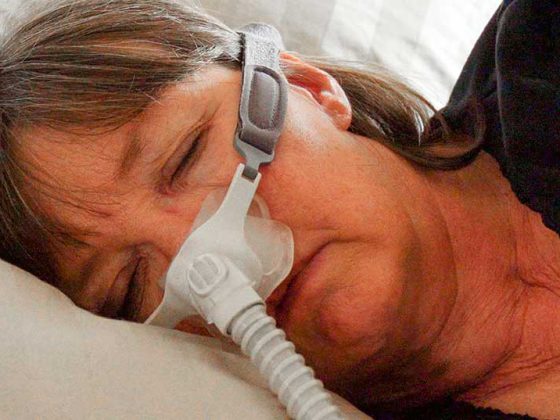The trend of personalized medicine is also more current than ever in the psychiatric field. It is hoped to improve the response to antidepressant agents and reduce side effects. A ketamine-containing nasal spray was also recently approved in Switzerland as a new drug for treatment resistance.
Based on empirical evidence, it is increasingly being recognized that personalized treatment strategies are the most promising for the treatment of many diseases. A project funded by the National Institute of Health Research is addressing this issue in relation to major depressive disorder. The corresponding research protocol was published in BMJ Evidence-based Mental Health in 2019 [1]. The goal is to develop a personalized treatment concept for adults that can be used in everyday clinical practice.
Biopsychosocial approach
The inclusion of individual factors in diagnosis and therapy is not new and is also mentioned, for example, in treatment recommendations of the Swiss Society for Anxiety and Depression (SGAD) [2]. It summarizes evidence-based therapeutic strategies for the acute treatment of depressive episodes according to the criteria of the International Classification of Disease (ICD-10) and the Diagnostic and Statistical Manual of Mental Disorders (DSM). In addition to a thorough diagnostic workup by a medical professional, treatment recommendations require that other mental as well as somatic illnesses be ruled out and that individual depression-triggering factors (e.g., medications, alcohol, drugs, psychosocial stress factors, etc.) be taken into account. General evidence-based recommendations on pharmacotherapy are given in terms of levels of evidence (levels A-D) based on randomized clinical trials. In Switzerland, psychiatric theory and practice are based on a biopsychosocial approach. The four basic elements of psychiatric treatment are: active wait-and-see support, drug treatment, psychotharapy, and combination procedures. The median episode duration of treated unipolar depressive disorder is estimated to be 16 weeks. The courses of depressive disorders show great interindividual variability.
ABCB1 genotyping as a basis for targeted therapy
The inclusion of biomarkers in the evaluation of treatment outcomes and for the optimization of treatment responses is a current topic in research on therapies for depressive disorders [3]. The ABCB1 test developed at the Max Planck Institute of Psychiatry in Munich is a molecular genetic diagnostic procedure designed to assist the physician in treating a patient with antidepressants [4]. This method can be used to measure the DNA sequence variants in the ABCB1 gene that encode the P-glycoprotein. This allows the identification of patients in whom, due to polymorphisms, many of the commonly used antidepressants are less able to cross the blood-brain barrier, which is a possible explanation for a lack of response to antidepressants. There are findings that empirically support the hypothesis that polymorphisms have an impact on therapeutic outcomes. Thus, Uhr and coworkers demonstrated that genetic variants of the ABCB1 gene are related to the efficacy of antidepressants if they are substrates of P-gp [5]. Based on the study results of ABCB1 genotyping, analyses were performed in the clinical setting. A pilot study was conducted to investigate whether translation could be successfully implemented [6]. A 1.5-fold increase in the dose of substrate after genotyping was associated with a shorter length of hospital stay. A meta-analysis of all studies involving hospitalized patients published in 2015 demonstrated a significant association of the SNP rs2032583 with treatment response [7]. The Swiss Society for Psychiatry and Psychotherapy (SGPP) recommends the use of the ABCB1 genetic test.
Summary
|
Ketamine-containing nasal spray approved for treatment resistance
The drug Spravato® has been approved in the US and EU since 2019 and in Switzerland since February 2020 in combination with an SSRI (selective serotonin reuptake inhibitor) or an SNRI (selective norepinephrine reuptake inhibitor) for adults with treatment-resistant major depression [8–10]. Treatment resistance is defined as a lack of response to at least two different antidepressants [9]. The approval is based on five Phase III studies involving a total of more than 1600 patients over the age of 18 with treatment-resistant depression. The ketamine-containing nasal spray resulted in a clinically significant response in the verum group as early as 28 days after baseline. Treatment response was operationalized as a reduction of at least 50% in the Montgomery-Asberg Depression Rating Scale in the induction phase compared with baseline. Combined with an antidepressant, Spravato® reduced the risk of relapse by 70% in patients with stable response compared to placebo and by 51% in patients in stable remission. Tolerability was generally good throughout the 52-week period, although blood pressure monitoring proved important because blood pressure levels may be temporarily elevated.
Literature:
- Tomlinson A, et al: Personalise antidepressant treatment for unipolar depression combining individual choices, risks and big data (PETRUSHKA): rationale and protocol. Evid Based Ment Health. 2019 Oct 23. pii: ebmental-2019-300118. [Epub ahead of print]
- Holsboer-Trachsler E, et al: The acute treatment of depressive episodes. In: The somatic treatment of unipolar depressive disorders: Update 2016, Part 1. Swiss Medical Forum 2016; 16(35): 716-724.
- Breitenstein B, Scheuer S, Holsboer F: Are there meaningful biomarkers of treatment response for depression? Drug Discov Today 2014; 19(5): 539-561.
- Max Planck Institute of Psychiatry, www.psych.mpg.de
- Uhr M, et al: Polymorphisms in the drug transporter gene ABCB1 predict antidepressant treatment response in depression. Neuron 2008; 57(2): 203-209.
- Breitenstein B, et al: The clinical application of ABCB1 genotyping in antidepressant treatment: a pilot study. CNS Spectr 2014; 19(2): 165-175.
- Breitenstein B, et al: ABCB1 gene variants and antidepressant treatment outcome: A meta-analysis. Am J Med Genet B Neuropsychiatr Genet 2015; 168B(4): 274-283.
- Mahase E: Esketamine is approved in Europe for treating resistant major depressive disorder BMJ 2019; 367: l7069.
- European Medicines Agency. Esketamine nasal spray Summary of Product Characteristics, www.ema.europa.eu/en/medicines
- Swissmedics: Spravato®, nasal spray (esketaminum), www.swissmedic.ch
HAUSARZT PRAXIS 2020; 15(5): 26-28











